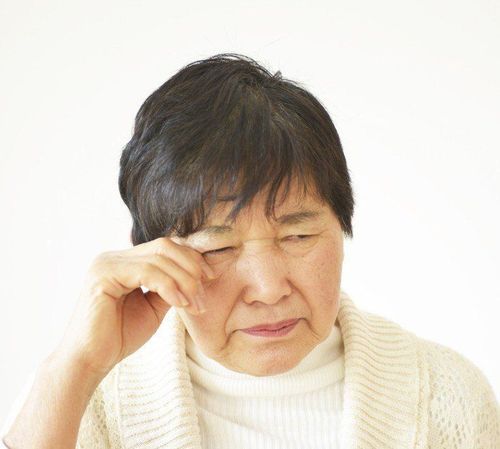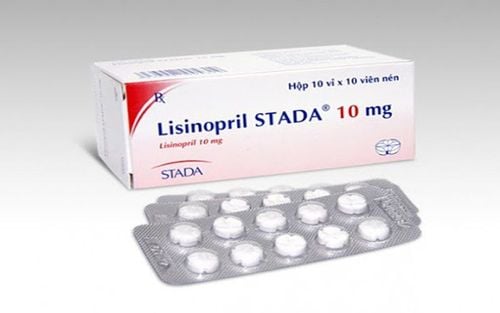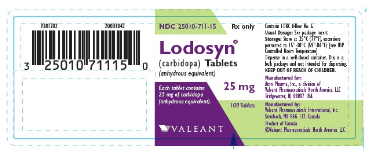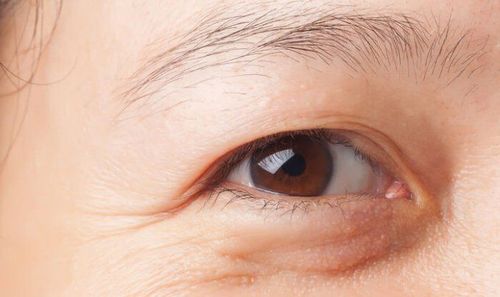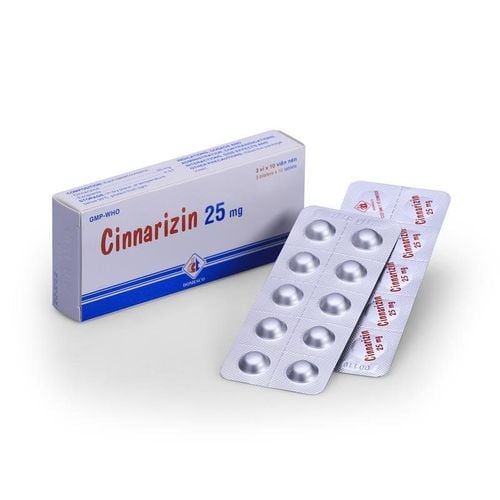This is an automatically translated article.
The article is expertly consulted by Master, Doctor Huynh An Thien - Department of Medical Examination & Internal Medicine, Vinmec International Hospital Da Nang.Migraine headache is a very common and recurrent disease. The cause of migraine headaches is unknown. However, the disease is also easy to diagnose and treat.
1. What is a migraine headache?
Migraine headache is an episodic migraine. A migraine headache is characterized by pulsating pain. The intensity of the pain varies from mild, transient to severe. Sometimes there is a right-sided migraine or it can be a left-sided migraine, pain on both sides of the head or cyclical rotation. Migraine headaches can last for hours or sometimes up to 2-3 days. The patients most commonly affected are women between the ages of 30 and 45.
2. What are the symptoms of a migraine headache?
Migraine has two main types
Migraine aura Migraine without aura Migraine aura, which means the person has a few symptoms that last for a few minutes or up to 30 minutes, before the attack the first half appears. Those symptoms can be
Blurred vision, dizziness. Dizziness, tinnitus. Loss of language, difficulty speaking. Scalp numbness. Numbness in hands, numbness on one side of the face (uncommon). After these symptoms disappear, a migraine headache occurs, usually the pain will start on one side of the head, then spread to both sides. The pain is worse when the patient moves and moves. Sneezing, coughing, or changing the position of the head can also make the headache worse. Accompanying the pain are symptoms such as sensitivity, discomfort to light, sound, nausea and vomiting. The pain eases when the patient goes into a dark and quiet place. When the pain is gone, the patient often feels tired, sleepy, and sluggish.
With migraine without aura, the pain comes on suddenly and there are no obvious symptoms to predict the pain, the patient may only have anxiety and loss of appetite before the pain appears. The intensity of the pain is also less than that of aura migraine. People with migraine headaches can experience two types of the disease at the same time.
3. Why is migraine headache a common and recurrent disease?
Surveys show a prevalence of 12% in some communities. Although the cause of migraine headaches is still unknown to date, some studies suggest that severe headaches may result from dysfunction of the brain, caused by blood vessels in the brain. dilates and releases serotonin and dopamine substances.
Besides, some factors also make the disease easy to happen
Nerves are stressed, insomnia. Women using oral contraceptives, to the menstrual cycle, the concentration of female sex hormones in the blood is changed. Weather changes. The environment is noisy, there are bright lights, cigarette smoke, some strong scents like concentrated perfume. The patient has had a head injury. Using canned and spicy foods such as monosodium glutamate, chemical sugar, chocolate, cheese, alcohol... With the above clinical features and symptoms, migraine headache is easy to diagnose but often affected. confused with tension headaches, cerebral ischemia, or vestibular disorders,... Therefore, making the treatment less effective, the disease easy to recur and more severe, difficult to treat.

4. How to cure migraine headache
Treatments for migraine headaches include acute relief and prevention of recurrent attacks. Patients can be treated simultaneously to relieve pain and prevent pain from returning.
Acute pain relief is used in most migraine headaches and provides immediate relief. Treatment to prevent recurrent, chronic pain is indicated for patients with severe pain (more than 3 attacks in a month) or a small number of attacks but more difficult to relieve. Treatment is by taking medicine for a long time (maybe more than 3 months) so that the pain does not appear. In addition, the doctor may also prescribe more pain relievers and antiemetics for the patient. In addition, there are a few remedies that can help relieve migraine headaches
Rest in a dark, quiet room. Use high pillows when lying down. Apply a cold towel to the affected area of the head. Avoid exposure and stay in an environment with a lot of cigarette smoke and strong odors. Enhance sleep and relaxation. Can practice, practice yoga movements, meditation to balance the body.

5. How to prevent migraine headaches?
To prevent migraine, the patient should
Sleep 7 hours/day for the body to recover after a day of labor and work. Avoid letting work-related fatigue and stress affect your sleep and rest time, because if you let this situation go on for a long time, you will not only get migraines but also face the risk of other health problems. other disease. Set up a reasonable living and working regime, regularly practice sports so that the body is balanced and regulated. Do not let the mind be stressed and stressed, because this is one of the factors that make the disease easy to break out, as well as make people with neurological, cardiovascular, digestive, ... more serious diseases. Instead, you should find a way to relax your body. Having a scientific diet, people with migraine headaches should limit and should not use alcohol, beer, smoke, avoid overusing foods such as chocolate, monosodium glutamate, and cheese. Limit in noisy places, environments with lots of glare, cold, stuffy air. Avoid using drugs that cause blood vessel dilation or birth control pills that contain estrogen.
6. Migraine headache treatment at Vinmec Da Nang
Any disease if diagnosed early and treated promptly will give good results. The same goes for migraine headaches. When the pain recurs, the patient needs to immediately go to the hospital or medical facilities to be examined and actively treated by a specialist.
Vinmec Danang International General Hospital with the Department of Examination & Internal Medicine, gathers a team of doctors with expertise and many years of experience in the field of neurology - stroke. Here, modern equipment including Cathlab room, fully functional DSA scanner (full option) can deploy high techniques, intervention in neurological diseases and stroke.
Specialist doctors at Vinmec Danang International General Hospital:
MSc Le Duong Tien: 20 years of experience in Internal Medicine, many years of experience in musculoskeletal, endocrinology, cardiology and neurology . MSc Bui Ngoc Phuong Hoa: more than 24 years working in the field of neuropsychiatric specialty, has participated in many continuous training courses on epilepsy, movement disorders, Alzheimer's, cerebrovascular accident, old age and endocrine diseases. BSCKII Le Nghiem Bao: Neurosurgery specialist, has more than 30 years of experience, is well-trained at home and abroad (France, Germany, China), used to teach at Da Nang Hospital. MSc Huynh An Thien : has strengths in examination, consultation and treatment of neurological, respiratory and endocrine - metabolic diseases. Migraine headaches are an idiopathic disease. The disease is easy to encounter and easy to recur, if diagnosed early and treated promptly, there will be good results. When the disease recurs, the patient needs to be monitored and treated by a neurologist.
Please dial HOTLINE for more information or register for an appointment HERE. Download MyVinmec app to make appointments faster and to manage your bookings easily.






